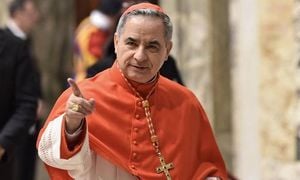The Preobrazhensky District Court of Moscow has sentenced businessman Boris Zimin in absentia to nine years in prison for fraud, marking a significant development in a high-profile case that has drawn considerable attention both domestically and internationally. The ruling, announced on April 22, 2025, also included a fine of one million rubles and a two-year ban on Zimin from engaging in managerial roles within commercial organizations.
According to the prosecutor's office, the case revolves around the embezzlement and illicit sale of a controlling stake in the Russian company Brainston, as well as 52.4% of the shares of the Cypriot car-sharing operator BelkaCar Ltd. The court found that from February 2017 to October 2019, Zimin organized the theft of 100% of the shares of a commercial entity, fully aware that these shares were the sole asset of a company owned by a foreign citizen. The prosecution claims that this embezzlement would lead to a loss of control over the organization for the primary shareholder.
The investigation alleges that Zimin and his accomplices executed the embezzlement of 17,781 shares worth approximately 367 million rubles through a series of civil law transactions involving a controlled legal entity. The court proceedings took place in absentia, as Zimin has been evading law enforcement and is currently on an international wanted list.
In a related development, the Tushinsky District Court of Moscow sentenced two other individuals involved in the case in June 2024. German businessman Ralph Novak received a five-year prison sentence, while Ilona Azmukhanova, the investment director of the Swiss investment fund Winterberg Group, was sentenced to four years. Both defendants were also fined, with Novak's penalty amounting to 800,000 rubles and Azmukhanova's to 500,000 rubles.
The case has been characterized by Zimin as politically motivated. In January 2023, he was placed on the wanted list, and in September 2022, the Russian Ministry of Justice designated him as a "foreign agent." This designation was based on claims that Zimin received foreign funding from Ukraine and was involved in political activities.
In 2024, Zimin commented to the German publication Spiegel that the Russian judicial system was actively seeking ways to prosecute him due to his socio-political involvement, particularly his opposition to the Russian government. He has been a prominent supporter of Alexei Navalny, the well-known opposition leader, and has funded Navalny's Anti-Corruption Foundation for over a decade. Notably, Zimin was responsible for financing the evacuation of Navalny, who was poisoned in August 2020, to the Charité clinic in Germany for treatment.
In addition to his political activism, Zimin has supported independent media initiatives in Russia. He founded the Redkollegia project, which aims to promote free journalism and uphold high professional standards in the field. This initiative has been recognized for its role in fostering independent journalism in a challenging environment.
As the case unfolds, the implications for Zimin, his family, and his business dealings remain significant. Boris Zimin is the son of Dmitry Zimin, the founder of VimpelCom, a major telecommunications company operating under the Beeline brand, and the Dynasty Foundation, which is known for its philanthropic efforts in science and education. Dmitry Zimin passed away in December 2021 in Switzerland, leaving behind a legacy of involvement in charitable activities.
Despite being away from Russia since 2004, Zimin's case continues to resonate within the context of the broader political landscape in the country. His status as a foreign agent and the charges against him are seen by many as part of a larger pattern of repression against dissent and opposition figures in Russia.
The court's ruling against Zimin highlights the increasing risks faced by Russian businessmen and political activists who oppose the current regime. With ongoing tensions between Russia and the West, the case is likely to attract further scrutiny from international observers concerned about human rights and the rule of law in Russia.
As Boris Zimin remains in exile, the outcomes of his legal battles and the fate of his associates continue to be closely monitored. The repercussions of this case extend beyond Zimin himself, reflecting the precarious situation for many who challenge the Russian government's authority.








